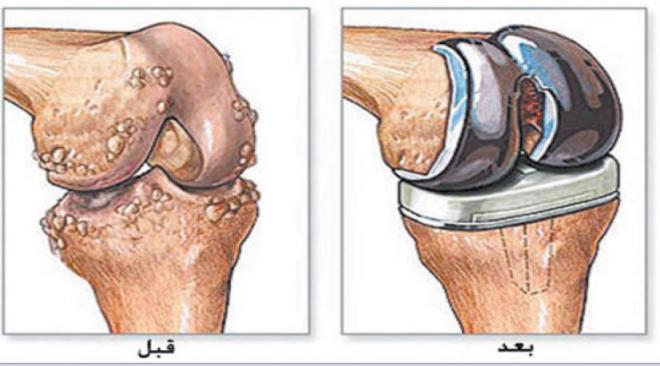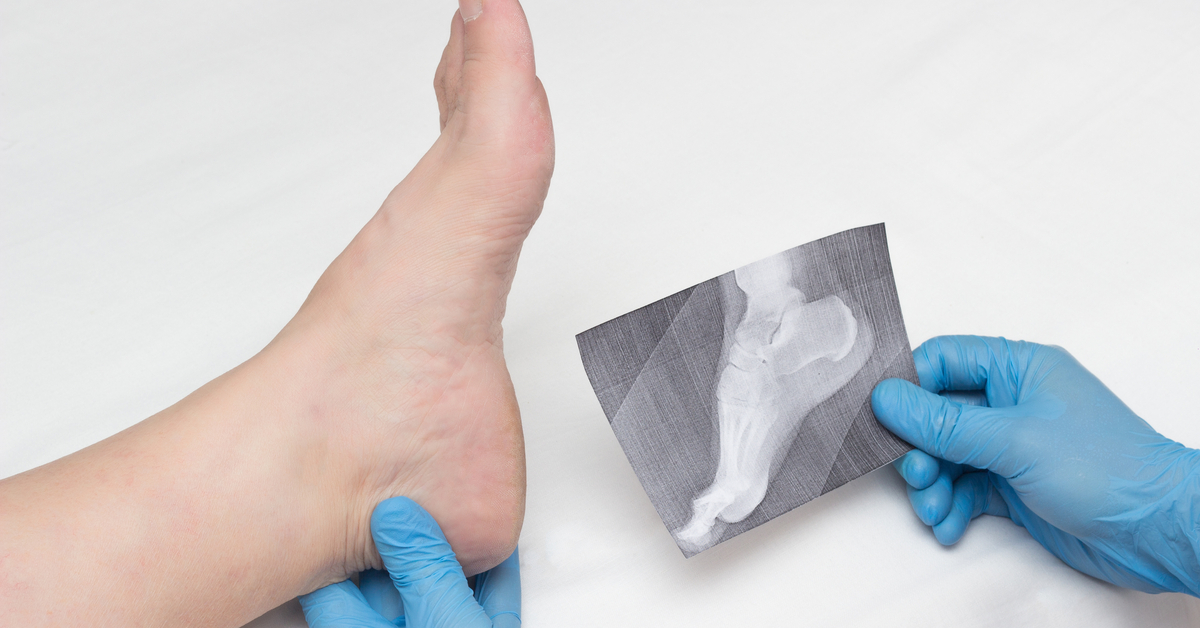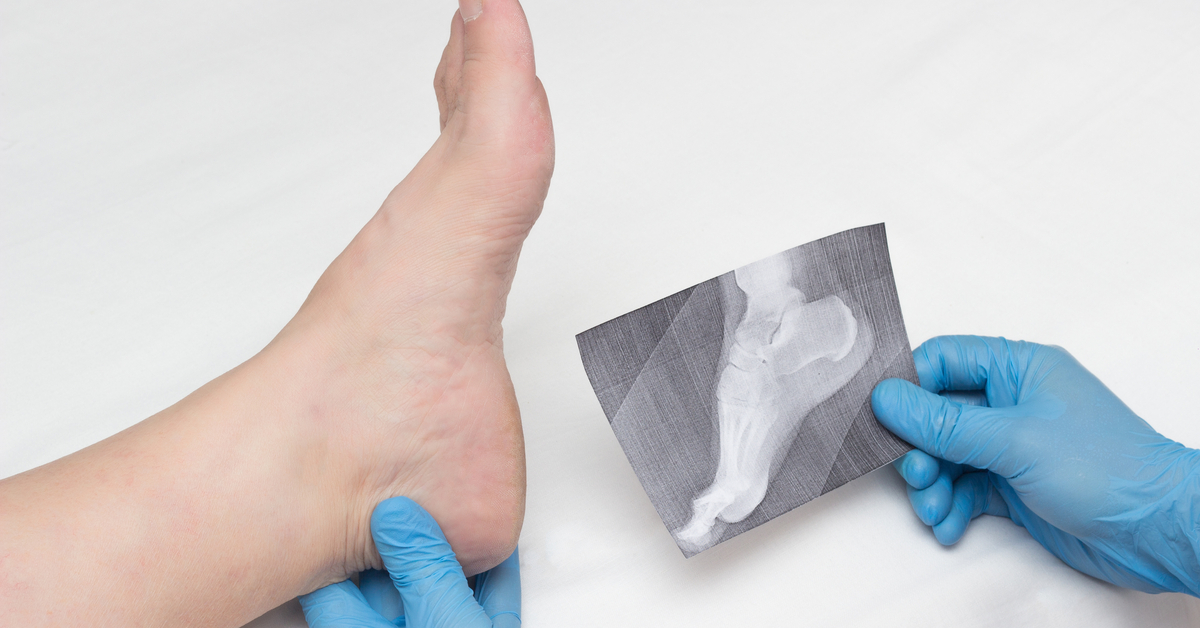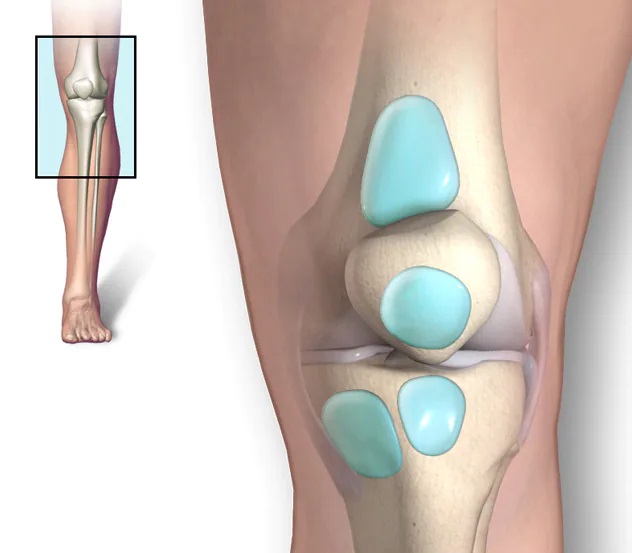Learn about the Cost of Knee Replacement Surgery in Egypt and the Available Alternatives!
The cost of knee replacement surgery in Egypt, The knee joint is one of the most important joints in the human body that aids in movement and maintaining body balance. Some individuals may suffer from numerous problems affecting their knee joint, leading to the need for its replacement. In our following article, we will learn about the most important information regarding knee replacement surgery in terms of its benefits, risks, and success rate. Stay with us to receive all the latest updates.

The Cost of Knee Replacement Surgery in Egypt
Egypt is one of the countries where knee replacement surgery is performed with good efficiency and at prices affordable to many. The cost of a knee replacement operation depends on several factors that have a significant impact on determining the price value, which are as follows:
- The type of joint to be installed, whether partial or total, in addition to the presence of other additional parts or supports.
- The doctor’s experience, skill, and efficiency in accomplishing their work and the successful cases they have operated on.
- The hospital and its focus on cleanliness, sterilization, and whether it meets quality standards.
- The cost of examinations, X-rays, and analyses required by the doctor before and after the operation, such as X-rays and MRI scans.
- The duration of the patient’s hospital stay after the operation, which depends on their condition.
- The patient’s age and overall health condition.
- The fee taken by the doctor in addition to the assisting medical staff.
- The material from which the joint is made, such as reinforced plastic or titanium.
- The physical exercises and physiotherapy sessions that the patient commits to after the operation.
Determining the price is one of the most concerning questions for the patient, and it certainly varies from one place to another according to the factors we mentioned above. However, the average price ranges from 35,000 to 90,000 Egyptian pounds and is subject to change. If you want to learn more about the details regarding the cost of knee replacement surgery and the necessary precautions to follow, we advise you to contact Dr. Amr Amal, the most famous orthopedic and joint surgeon in Cairo, by messaging him on the official clinic page from here.
Candidates for Knee Replacement Surgery
Doctors resort to knee replacement surgery when all other treatments, including physical therapy, have failed. However, the procedure is not suitable for everyone; there are certain factors that make a person a candidate for undergoing the operation, including the following:
- Presence of swelling in the knee.
- The patient suffers from weakness in the knee joint.
- Experiencing severe and persistent pain that does not respond to any kind of treatment and clearly affects one’s ability to perform daily activities.
- Noticing restricted movement in the knee.
What is the Lifespan of an Artificial Joint?
Most doctors believe that the lifespan of an artificial joint varies from person to person depending on the type of joint and its location. You find that a knee joint needs from 10 to 15 years before it needs to be replaced, while a hip joint lasts from 15 to 20 years. We inform you that undergoing a knee replacement surgery with Dr. Amr Amal is the perfect choice to improve the quality of your life, so enjoy the experience with us.
Benefits of Knee Replacement Surgery
The doctor’s decision to proceed with a knee joint replacement results in many benefits, which we will learn about in some detail as follows:
- Preserving Health: Knee pain can generally make a patient feel lethargic and immobile, which leads to weight gain and subsequently to many obesity-related problems. Undergoing knee replacement surgery protects them from that condition afterwards.
- Assisting with Movement: This is one of the benefits of knee replacement surgery, where the severe pain that the patient felt disappears, thus enabling them to walk more freely and to climb and descend stairs more comfortably.
- Reducing Pain: The operation indeed helps the patient to get rid of the pain that accompanied them and that did not subside with the use of various types of medications and medical painkillers.
- High Success Rate: The success of knee replacement surgery has reached very high results in addition to its great safety.
Risks of Knee Replacement Surgery
One of the most important questions that concerns a person considering knee replacement surgery is the risks and complications that may arise from the procedure and its impact on them. However, we can reassure you that the success rate of this operation is significantly high and that there are no major risks associated with it. Nonetheless, it is essential to be aware of some issues in order to make an informed decision about whether to undergo it or not, which are as follows:
- Feeling numbness at the outer edge of the surgery area.
- The patient may feel that the situation is not normal, of course, if compared to a natural knee.
- The artificial knee enables you to kneel without any problem, but some people find this uncomfortable and not at all pleasant.
The knee joint lasts for long periods, up to 20 years, but after that duration, it is necessary to replace the knee with another joint. Like any surgical procedure, knee replacement surgery can result in some complications, which include the following points:
- The patient may continue to feel pain and stiffness after the surgery.
- The occurrence of blood clots in the legs or lungs.
- The possibility of the patient contracting an infection.
- The patient might experience bleeding.
- Suffering from fractures.
- There may be loosening or wear of the artificial end, and from here, there may be a need to change the joint again.
- There could be damage to blood vessels or nerves in the surgical area, which makes the patient unable to control the knee well.
When does walking begin after knee joint replacement?
After knee replacement surgery, the patient stays in the hospital for a period ranging from one to three days during which the medical team checks on the patient’s health status and assists them in moving their legs and walking gradually. This, of course, depends on the patient’s condition and other factors that determine their discharge to go home.
After the patient leaves the hospital, they begin to practice walking using crutches until they can rely on the artificial knee without causing it damage. After 48 hours from the operation, the patient undergoes a rehabilitation program where they perform specific exercises that strengthen the knee joint and the surrounding muscles. This enables the patient to have the ability to walk and move the joint in the required directions.
Is Joint Replacement Surgery Dangerous?
This question occupies the minds of many individuals suffering from joint issues. One should know that joint replacement surgery may be necessary in certain cases, but it carries some risks in the short and long term. Knee or hip replacement surgery exposes a person to surgical risks, such as anesthesia, bleeding, swelling, and pain, in addition to the risk of infection.
The surgery may also require a lengthy recovery period, and the individual must follow the doctor’s instructions and routine practices to improve the chances of a successful surgery. However, after the surgery, the situation varies from one person to another; some experience severe pain and swelling, while others recover more quickly and enjoy the chance to move more freely and with vitality. Joint replacement is a surgery that requires each case to be studied individually and the best option to be selected between joint replacement or traditional treatment. It is necessary to ensure good conditions for the surgery and the necessary follow-up for the post-surgery period to improve the results and avoid risks.

Is Knee Replacement Surgery Successful?
Yes, knee replacement surgery is highly successful, with a success rate of up to 95%. It is one of the procedures known for its high success rate, and it rarely fails. Of course, the outcome depends on the skill and expertise of the doctor and their years of experience. Therefore, always look for a skilled doctor who will do the best for you and choose the most appropriate treatment that suits your overall health and condition.
Before and After Knee Replacement Surgery
There are several things that a patient must be aware of before and after undergoing knee replacement surgery, which include the following:
- Make sure to ask the doctor about the medications that should be taken and those that need to be discontinued prior to the operation.
- Inquire about the patient’s medical history and any medications and dietary supplements they are taking.
- Patients must stop taking anticoagulant medications such as aspirin or warfarin two weeks before the surgery. If the patient is taking any immune system suppressants like methotrexate, they should discontinue them immediately.
- It is important for patients suffering from high blood pressure or diabetes to control their levels before proceeding with the operation.
- Conduct some diagnostic tests and imaging, such as magnetic resonance imaging (MRI) or X-rays on the patient’s knee for an accurate diagnosis, as well as blood tests including kidney and liver function tests and a complete blood count.
- Refrain from consuming alcoholic beverages before the operation.
- Naturally, abstain from eating for a period ranging from 6 to 12 hours before undergoing the surgery; if the patient needs to take any medication, it can be taken with a small sip of water.
- Ensure that the patient is not suffering from any illness that could hinder the operation.
- Perform an electrocardiogram (ECG).
After Knee Replacement Surgery
Following a successful procedure, the patient is moved to a room in the hospital and stays there for one to three days depending on their health status. The doctors assist them in fully recovering by encouraging them to attempt walking, as this helps in circulating the blood and preventing swelling and blood clots. This is in addition to regularly practicing the necessary exercises for the knee to achieve the best possible outcome desired by the patient.
It is normal for the patient to feel some pain in the knee after the surgical procedure. The doctor will prescribe various pain relievers, anti-inflammatory medications, and anticoagulants to avoid blood clots and to help the patient recover more quickly.
What Is an Alternative to Knee Replacement Surgery?
“Thanks to the latest medical techniques and advancements, Dr. Amr Amal and his team offer innovative solutions to combat knee osteoarthritis.”
Many patients may need knee replacement surgery, but they may find the cost prohibitive or have concerns about potential complications. Therefore, it’s important to consider alternative or initial approaches before resorting to surgery. Some of these solutions include:
- Exercise: Regular physical activity is essential, contrary to the belief that it may exacerbate knee pain. Exercise helps reduce stiffness and knee pain, builds and strengthens muscles to support the knee, and promotes joint health. Beneficial activities include walking, swimming, yoga, and cycling.
- Medication: Treatment options include dietary supplements and injections. Natural dietary supplements contain ingredients like glucosamine, which aids in rebuilding and preserving cartilage, such as glucosamine sulfate. Steroid injections are administered to reduce pain and inflammation in the knee joint. Hyaluronic acid injections lubricate the joint to protect it from wear and tear.
- Physical Therapy: Patients can benefit from specific exercises prescribed by a physical therapist, helping strengthen muscles and joints, improving mobility, and achieving joint stability.
- Minimally Invasive Treatments: These treatments aim to restore knee function, and the type of treatment varies depending on the patient’s condition and requirements.
- Weight Loss: Significant weight loss can substantially reduce the pressure on the knee, thereby minimizing pain.
For more details on alternative knee joint treatments and essential exercises for affected individuals, we recommend referring to the following article.



















